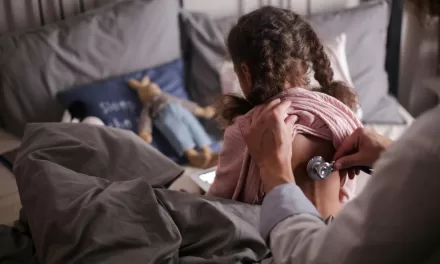Cincinnati, OH — Samantha Boch, an assistant professor at the University of Cincinnati College of Nursing, has dedicated over a decade to studying the impact of incarceration on child and family health. Her latest research delves into the health records and healthcare use of youth under 21, focusing on those likely involved in the justice system or having family members who are.
Challenges in Identification and Study Scope
Identifying youth affected by mass incarceration poses significant challenges, as healthcare systems typically do not inquire about incarceration. Families often avoid disclosing this information due to stigma, fear of child protective services, or judgment. “There are few, if any, large community-level studies about the health of youth affected by incarceration, or their family’s incarceration, using medical records,” Boch explains. She emphasizes the gap in understanding the prevalence and consequences due to provider unawareness, lack of relevant curriculum in provider training, insufficient funding, and the absence of routine sensitive screening.
Research Methodology
Boch and her team conducted an exhaustive search of electronic medical records for justice-related keywords, including “prison,” “jail,” “sentenced,” “probation,” and “parole.” They analyzed data from Cincinnati Children’s Hospital spanning 11 years. Their study, published in Academic Pediatrics, reviewed over 1.7 million records and found that 38,263 youth (2.2%) seen between January 2009 and December 2020 likely had a parent incarcerated or faced juvenile confinement.
Disproportionate Health Impact
This 2.2% of youth were responsible for a disproportionate number of physical and mental health diagnoses and healthcare visits. Compared to a socio-demographically matched sample without justice keywords and the total youth population, these youth accounted for 63.3% of all behavioral health inpatient admissions, 23.7% of all hospitalization inpatient days, and 45.5% of all foster care visits.
Boch’s findings align with her 2021 study using data from Nationwide Children’s Hospital in Columbus, Ohio. Youth with justice-related keywords in their records exhibited 1.5 to 16.2 times higher prevalence of various physical and mental health disorders. They had 428.2 more physical health diagnoses and 269.2 more mental health diagnoses per 100 youth than matched peers without justice keywords.
Key Findings and National Implications
Youth with justice-related keywords comprised significant proportions of diagnoses at Cincinnati Children’s from 2009-2020, including 42.9% of all schizophrenia spectrum and psychotic disorders, 42.1% of bipolar and related disorders, and 38.3% of suicide and self-injury disorders. They also accounted for substantial percentages of trauma, infectious diseases, speech language disorders, and youth pregnancies.
Nationally, about 7% of U.S. youth have had a parent incarcerated. Boch asserts that findings at Cincinnati Children’s and Nationwide Children’s Hospital underestimate the true number of youth affected by incarceration. “Our data reflects families who disclosed and health providers who documented,” Boch notes, highlighting the study’s limitation in capturing all affected individuals.
Future Directions
Boch advocates for replication of these findings in other communities to support decarceration efforts and reforms. “We will continue to have healthcare disparities and lead the world with poor health outcomes if we continue to lead in incarceration,” she warns.
Collaborative Efforts and Support
The study’s co-authors include Joshua Lambert, PhD, University of Cincinnati; Christopher Wilderman, PhD, Duke University; and Judith Dexheimer, PhD; Robert Kahn, MD; and Sarah Beal, PhD, from the University of Cincinnati and Cincinnati Children’s. The research was supported by various awards and internal funding from the University of Cincinnati and Cincinnati Children’s Hospital Medical Center.
Boch’s research underscores the critical intersection of healthcare and the justice system, advocating for systemic changes to support the health and well-being of all children and families.












